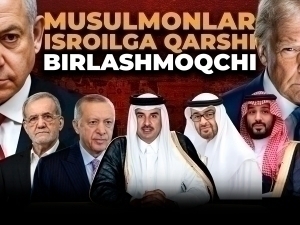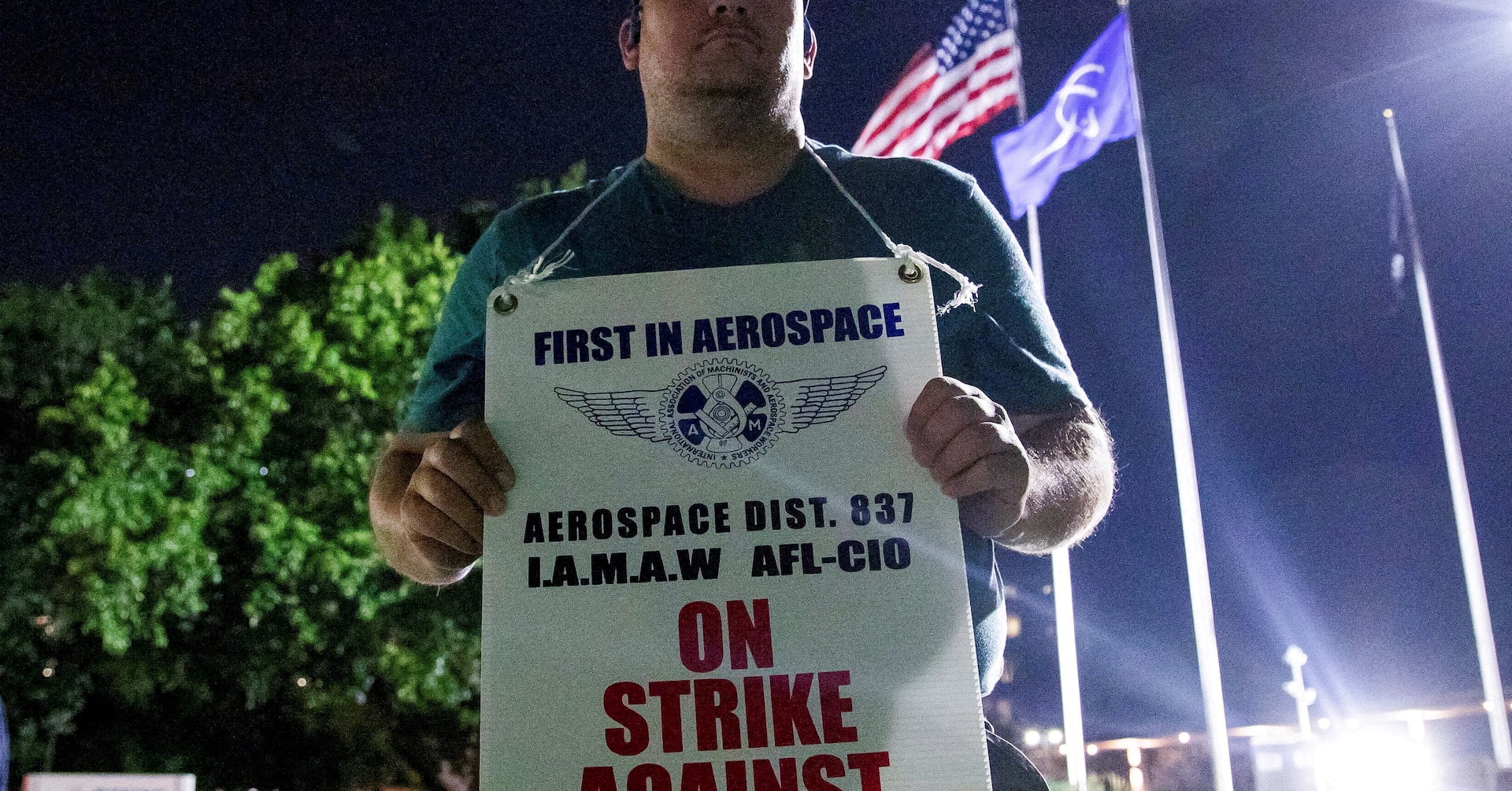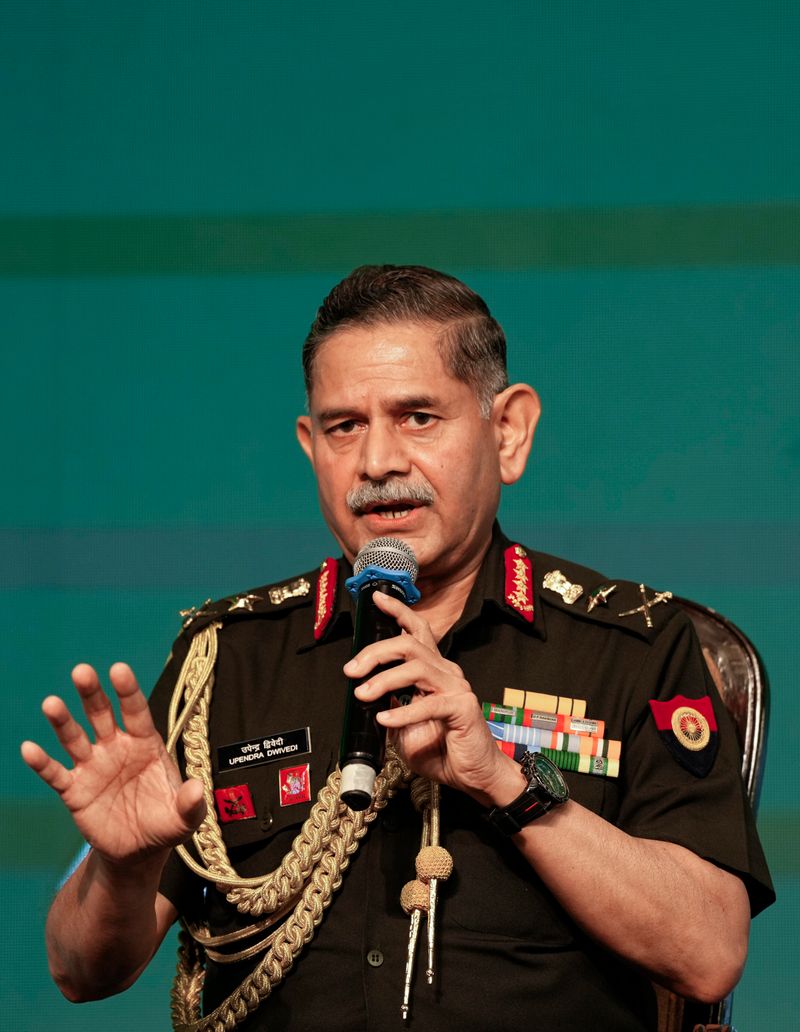By Toir Obidov
Copyright qalampir

Qatar gathered leaders from across the Muslim world. Among them were heads of powerful states opposed to Israel. While the Emir of Qatar delivered sharp criticism of the Jewish state, Turkish President Recep Tayyip Erdoğan openly declared that the Islamic community has the strength to thwart Israel’s plans. Pakistan called for uniting against Tel Aviv. In short, the first sparks of unity against the US-Israel alliance were seen in Doha. However, it should not be forgotten that this unity, for now, exists only in words.
Despite this, anti-Netanyahu sentiment has flared not only across the Islamic world but also globally. Even if not at the government level, movements to stop the genocide in Gaza have grown stronger among ordinary people in many Western countries. These efforts so far have taken the form of protests. The same trend is visible at the United Nations, where a commission classified Israel’s actions in Gaza as genocide. Moreover, the General Assembly, by majority vote, endorsed the establishment of a Palestinian state. One by one, Israel’s partners are turning away. Spain was among the first, canceling an arms deal worth several hundred million dollars.
Israel and the United States, however, have shown no reaction to this trend. The aggression in Gaza has entered a new stage. Along with genocide, the campaign is now moving toward the complete occupation of the territory. Reports say the surroundings of Gaza City have already been seized, and hundreds of thousands of residents have fled. The situation is extremely serious.
As Muslim leaders gathered in Doha in response to Israel’s strike, the United States sent Secretary of State Marco Rubio to Tel Aviv, signaling to the entire Islamic world where Washington stands. For now, this is the reality. Today, we will look at these developments in detail.
Arabs finally begin to show anger
After Israel’s strike on Hamas leaders in Qatar signaled there were no longer any limits to its actions, Arab states and their allies began to take notice. For this reason, on September 15, an extraordinary summit of Arab and Islamic leaders was convened in Doha. The participants were powerful: the presidents of Iran and Turkey, Pakistan’s prime minister, the Emir of Qatar, representatives from the UAE’s Nahyan family, Saudi Arabia’s “black prince,” and other Gulf officials gathered in the Qatari capital to oppose Israel. Yet, as expected, the outcome went no further than condemning the attack on Hamas leaders in Doha, issuing a few sharp statements, and holding limited talks among themselves. No concrete measures were adopted. The only practical outcome was the Gulf Cooperation Council’s pledge to activate a “joint defense mechanism.” We will return to this later, but for now, let us note that Israel’s strike on Doha and its ongoing massacres in Gaza have finally stirred anger in the Arab world.
Indeed, since the creation of Israel, the Middle East has never been free from wars. Gulf and other Arab countries waged several wars against the Jewish state in opposition to its establishment in Palestine and the apartheid rule it imposed there. History shows, however, that they failed to win any of those wars. Afterward, each state went its own way. Realizing it was impossible to defeat Israel, backed by the world’s strongest power, Gulf states chose instead to focus on economic growth and the well-being of their populations. This, most likely, explains their current level of development. For example, one only needs to recall Dubai or other Arab capitals in 1994 to see the contrast. By then, the bipolar world had ended, the US had become the sole global hegemon, and this change worked in favor of its Middle East “watchdog”—Israel.
The occupation of Palestinian lands intensified, and the oppression of Arabs grew, continuing to this day. Neighboring Arab states, meanwhile, kept developing in their own direction, having learned that years of fighting Israel brought no benefit.
Today, however, Israel has crossed all boundaries, creating real concern for Arab states. The genocide in Gaza has been ongoing for two years. Yet during this time, Arab governments did not react as they did after the strike on Doha, which immediately triggered an emergency summit. After Netanyahu’s regime proved in the past three months that it could strike any state in the region, Gulf countries and others finally began to wake up. Opening the Doha summit on September 15, the host, Emir Sheikh Tamim bin Hamad Al Thani, echoed the anger and resentment felt across the region against Israel. He declared that his country had been subjected to a treacherous attack. He did not specify which state betrayed Qatar—perhaps referring to Israel’s betrayal of peace, or possibly hinting at direct American betrayal. US media reported that former President Trump had been aware of the strike in advance and approved it. Some American officials who normally would have been in contact with the operations center in Doha stated that communication was “lost” during the September 9 strike, suggesting that ties were deliberately cut to facilitate the operation.
If these claims prove accurate, Qatar and the Arab world may indeed have suffered a shameful betrayal. For decades, Gulf monarchies have relied on the US for security. Qatar hosts America’s largest military base in the region. The building bombed by Israel was not far from the US Embassy in Doha, and only 40 kilometers from Al Udeid Air Base. This can only be called betrayal. Nothing else. For this reason, Qatar has been consumed with anger. Yet, so far, Doha’s fury is directed at Israel, not the US. Middle East sources report that Qatar has even asked the UAE, once considered its closest ally, to close Israel’s embassy on its soil. But it is highly unlikely that the Nahyans, who have invested trillions of dollars in the US, would dare take such a step. Moreover, Abu Dhabi was among the first Gulf capitals to recognize Israel under the Abraham Accords, effectively selling out Palestine in exchange for a handful of F-35 fighter jets.
As the saying goes, “The body does not feel another’s pain.” Still, the Emir of Qatar stressed that Israel’s actions are directed not only against Palestine or Qatar but against the entire Arab world. He also warned of Israel’s regional expansion, citing repeated bombings in Lebanon, Syria, and Yemen, its occupation of Syrian land, and its refusal to withdraw from southern Lebanon. According to the Emir, Benjamin Netanyahu dreams of turning the Arab region into Israel’s sphere of influence, but this is a “dangerous illusion.”
The summit did not announce any concrete political or economic measures against Israel. Earlier, Qatar had hinted at the possibility of sanctions against Tel Aviv, but that did not materialize. Sadly, Arab monarchies continue to throw stones into the dark. They urged their partners to step up pressure on Israel—but which partners? The United States? The Trump administration that allegedly betrayed Qatar? All of it seems futile. Ultimately, the summit’s final communiqué was limited to condemnations and expressions of solidarity with Qatar. Still, there was at least one modest outcome: the beginning of greater unity in the field of defense.
Are Arab States beginning to unite against Israel?
In 1981, the Gulf Cooperation Council (GCC) was founded in Riyadh, the capital of Saudi Arabia. It currently has six member states: Saudi Arabia, the United Arab Emirates, Kuwait, Qatar, Oman, and Bahrain. The organization’s main objectives include strengthening political, economic, military, security, and cultural cooperation among members, creating a single market and customs-free trade area, coordinating responses to internal and external threats, and eventually introducing a common currency. However, as the saying goes, “Arabs can only agree to disagree,” many of these goals remain unfulfilled to this day. Among the unmet objectives are military cooperation, joint responses to external threats, and a single currency.
The issue we want to highlight is the prospect of military alliance. The GCC already has a defense force known as the “Peninsula Shield Forces,” established to ensure members’ security. The council has a defense pact binding Bahrain, Kuwait, Oman, Qatar, Saudi Arabia, and the UAE. Following Israel’s strike on Doha, a summit on establishing a joint command structure is expected in the near future. Interestingly, the GCC still lacks a unified military command. In light of Israel’s disregard for borders, this structure could soon materialize. Qatar’s Foreign Ministry spokesperson, Mohammed Al-Ansari, also hinted at this, saying that the upcoming joint command meeting will address the security of GCC states and that its members now stand united.
It is worth recalling that GCC members signed a Joint Defense Agreement in 2000. Under this pact, an attack on one member is considered an attack on all, similar to NATO’s principle. The GCC declared its readiness “to mobilize all capabilities to defend Qatar’s security, stability, and sovereignty against any threat.” However, serious doubts remain. Unlike NATO, the GCC’s mutual defense obligations are not binding, as it lacks a centralized command structure. Moreover, in past instances—such as the Houthi attacks on Saudi Arabia and the UAE—the GCC did not take collective defense action, despite the pact. Still, Gulf leaders have long been alarmed by Israel’s aggressive actions in Lebanon, Syria, and Iran, as well as Washington’s indifference to these strikes.
United States continues “cleaning up” after Israel
As the Doha summit was taking place, US Secretary of State Marco Rubio was in Israel. By meeting Prime Minister Benjamin Netanyahu, he sent a clear signal that while the Islamic world may rally around Qatar, Washington remains firmly behind Israel. During their joint press conference, Netanyahu repeated his threats and even expanded the list of possible targets. He suggested that countries hosting Hamas members—such as Turkey, Egypt, and Qatar—could also face Israeli strikes. This was seen as a direct threat to Ankara. Reports also indicate that Israel has already struck Qatar and may have attempted to target Hamas officials in Egypt. By implication, Turkey could be next.
Rubio did not oppose Israel’s attack on Qatar. Meanwhile, former President Donald Trump issued contradictory remarks, seemingly hinting at US involvement in the strike and not ruling out further Israeli attacks. The Secretary of State, for his part, dismissed Qatar’s mediation role, labeling Hamas as “a terrorist group whose aim is the destruction of the Jewish state.” By saying that Qatar’s years-long efforts to broker a ceasefire were pointless, Rubio publicly undermined Doha’s position. He also assured Netanyahu that Washington supports Israel’s offensive in Gaza, but urged that it be carried out swiftly. In recent weeks, Israeli forces have intensified attacks on Gaza, urging civilians to move south.
Reports indicate that nearly 300,000 people have already fled Gaza. Palestinian officials told Al Jazeera that the city has been heavily bombarded, with tanks entering its outskirts. The strikes have been so powerful that they were heard not only in Gaza but also in central Israel. Media reports note that in just 20 minutes, the Israeli army carried out 37 strikes, some involving combat helicopters.
It should be recalled that the decision to invade Gaza was made in early August. Some senior Israeli military leaders, including Chief of Staff Eyal Zamir, initially opposed the plan but later approved its execution. According to military sources, Israeli forces already control parts of Gaza’s outskirts. The United States, meanwhile, continues to be the main backer of this brutal assault.
Sparks of unity against Israel
Although the joint statement of the Doha summit did not include concrete measures, several leaders voiced more decisive proposals. As expected, Turkish President Recep Tayyip Erdoğan emerged as a central figure. He called on world nations to apply economic pressure on Israel, stressing that such measures had proven effective in the past. Erdoğan also proposed prosecuting Israeli officials through international legal mechanisms and emphasized that the Islamic world has the capacity to thwart Israel’s expansionist ambitions. He added that even countries that once supported Israel are now turning away from its actions.
On the same day, the Emir of Qatar and the Turkish leader stood out as the strongest opponents of Israel. The most symbolic moment of the summit occurred between them: Erdoğan presented Sheikh Tamim bin Hamad Al Thani with a large artwork inscribed with the words “Victory comes from Allah,” while the Qatari Emir declared that Erdoğan was his best friend.
Others at the Doha summit also refused to remain silent. Pakistani Prime Minister Shehbaz Sharif proposed the harshest measures, including suspending Israel’s UN membership and creating a joint Arab-Islamic group. He stressed that an Arab-Islamic operational group was urgently needed to counter Tel Aviv’s expansionist moves and called on all states to take the idea seriously.
Malaysian Prime Minister Anwar Ibrahim declared that “condemnations will not stop the rockets, and statements will not liberate Palestine,” urging strict sanctions against Israel and the severing of diplomatic and economic ties. Whether his call had any impact on states that had already normalized relations with Israel—such as the UAE, Bahrain, and Egypt—remains unclear. Yet, leaders from those countries were present at the summit, including members of the Nahyan family.
Iranian President Masoud Pezeshkian also joined the chorus, calling on Muslim states to cut all relations with Israel.
Representing Uzbekistan, Foreign Minister Bakhtiyor Saidov delivered President Shavkat Mirziyoyev’s address to the extraordinary Arab-Islamic summit. In his statement, Mirziyoyev expressed strong solidarity with the Qatari people and all Muslim nations, sharply condemning the recent military aggression that threatens peace and security in the Middle East.
Mounting troubles for Israel
Israel is facing growing global outrage. For Prime Minister Benjamin Netanyahu’s regime, a chain of problems has begun to unfold. From international organizations to bilateral relations, Tel Aviv is increasingly losing partners and close allies.
For example, on September 12, the UN General Assembly adopted a resolution calling for a return to the “two states for two peoples” principle in resolving the Israeli–Palestinian conflict. The resolution was supported by 142 countries, including Uzbekistan. Only ten voted against it—among them, predictably, the United States and Israel—while 12 abstained. The resolution was co-sponsored by France and Saudi Arabia. On September 22, French President Emmanuel Macron is expected to formally recognize a Palestinian state, with several other European and Western countries likely to follow.
In addition, the UN Independent International Commission of Inquiry on the Occupied Palestinian Territory officially recognized Israel’s actions in Gaza as “genocide.” The report stated that Israel had deliberately sought to physically destroy Palestinians, including measures aimed at preventing births and eliminating their reproductive capacity as a group. Israel’s Foreign Ministry rejected the findings, dismissing them as based on “Hamas lies,” and called for the commission to be dissolved.
But this is far from Israel’s only problem. It is also losing contracts and strategic partnerships. Spain’s Ministry of Defense canceled a €700 million deal with Israeli firm Elbit Systems for the supply of PULS artillery systems, citing the war in Gaza as the reason for severing ties. This decision followed the earlier suspension of a €285 million contract with Rafael Advanced Defense Systems for Spike LR 2 anti-tank missiles. Spain is now exploring alternatives from US firms such as Raytheon and Lockheed Martin, including the Javelin missile system.
Spanish Prime Minister Pedro Sánchez has become one of Europe’s harshest critics of Israel. He previously condemned the “atrocities and genocide” in Gaza and called for Israel’s exclusion from international sporting competitions. Sánchez also announced nine measures aimed at ending “complicity in genocide,” including a total arms embargo, banning Israeli officials linked to war crimes from entering Spain, halting military cooperation, and expanding humanitarian aid to Palestinians.
Meanwhile, Netanyahu has accused Qatar and China of trying to isolate Israel. According to him, both countries are investing heavily in artificial intelligence, gaining influence “more powerful than traditional media.” He warned that Israel’s defense industry could face a blockade, citing Spain as a clear example.
Indeed, the likelihood of Israel being left isolated is rising rapidly. Even today, the United States remains its only steadfast ally. Yet many believe this will not last long. As Netanyahu’s brutal policies erode Washington’s global standing, America’s Gaza position is disheartening even to its closest partners. It is becoming increasingly clear that Israel is not only striking Gaza and its neighbors—it is also undermining the United States itself.



